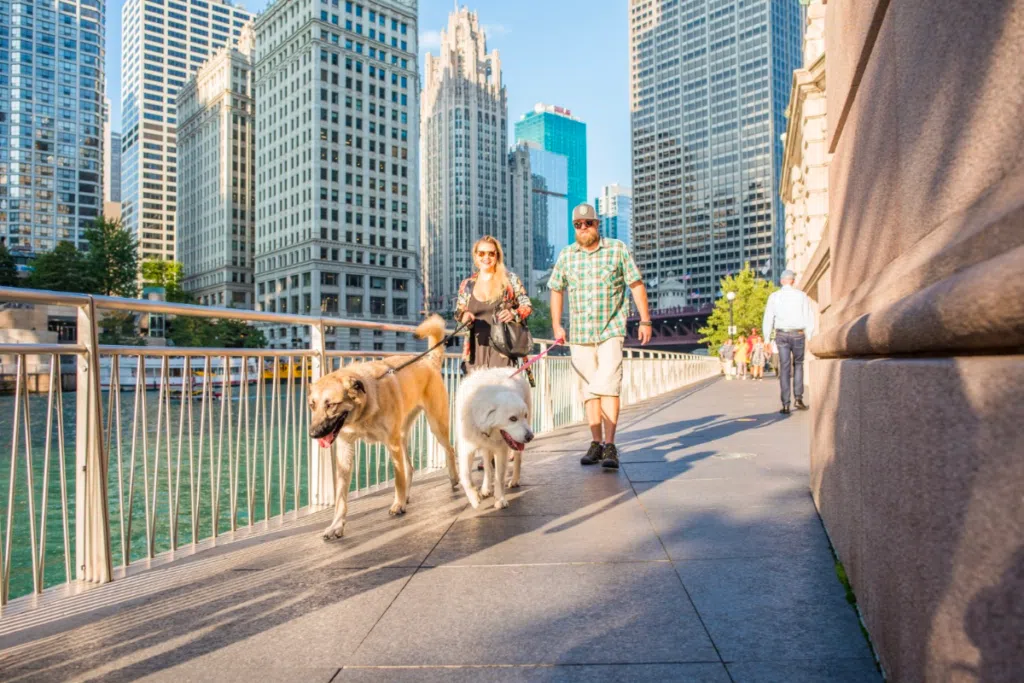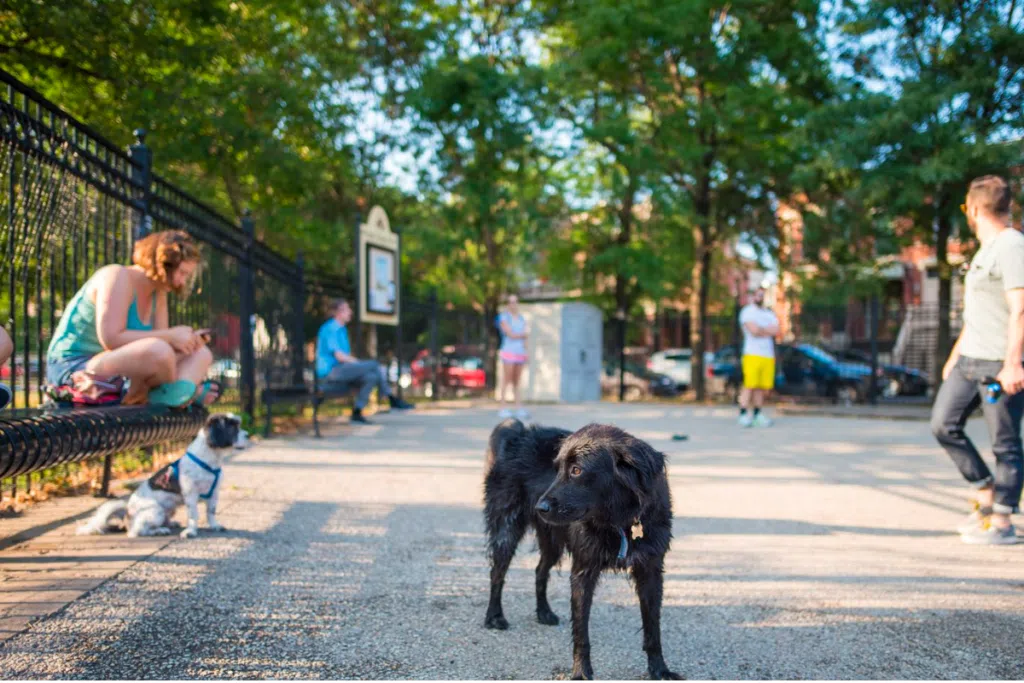Chicago Dog Bite Lawyer
When a dog bite or dog attack occur, it is the owner of the dog, not the breed of dog or the individual dog, which is responsible for it. If you or someone you know living in the Chicago area has suffered an injury from a dog bite or an attack by a dog or other animal, it is important for you to know your legal rights.
Dog Bite Statistics
Dog bites pose a serious health risk to our communities. Every year, more than 4.5 million people in the United States are bitten by dogs and around 800,000 of those bitten require medical attention. Children make up at least half of dog bite victims and are far more likely to be severely injured.
According to a State Farm report published in accordance with National Dog Bite Prevention Week, Illinois ranked #2 nationally in dog bite claims in 2020, with 258 claims filed and $12.6 million in claims paid out. Illinois also ranked #7 in the number of USPS workers bitten by dogs in 2021, according to the USPS Dog Attack National Rankings.

Why do dogs bite?
The majority of dogs we have come across in our life have been cute, happy, and friendly. Yet, every dog is capable of biting under certain circumstances. Dogs may bite because they are stressed, startled, scared, in pain, feeling threatened, or protecting their young. During playtime, dogs may get overly excited, leading to biting or nipping. Additionally, a combination of genetics, lack of socialization or training, or a traumatic experience can cause a dog to develop reactive tendencies. With reactive dogs, doors slamming, people yelling, or simple, common stimuli in their environment can cause them to bark, lunge, or bite.
Illinois Dog Bite Laws
Illinois statutes make the owners of dogs and other animals liable for injuries that are caused by their pets. Under the law, “owner” is interpreted broadly, including anyone who keeps or harbors a dog, and also covers anyone who knowingly allows a dog to remain on a property that they occupy—owners can legally include landlords or the actual owners of a property in many cases as well as the actual “owner” of the dog. In Illinois, dog owners are held to a strict liability principle for injuries that are caused by their dogs. In addition to State laws, local counties and cities have their own ordinances that govern a dog owner’s liability for injuries caused by their pets.
Strict Liability: What is it and how does it relate to dog bite cases in Illinois?
Dog bite cases usually fall under two theories of liability – negligence or strict liability. Illinois is a state that follows strict liability for dog bites. This means that an owner cannot claim that they did not know that their dog had a tendency to act aggressively, bite, jump on someone, or cause any other injury. This knowledge is considered to be irrelevant by the courts and it is assumed that any dog has the potential to be dangerous. Thus, an owner is liable even if the dog had never acted aggressively or injured anyone – the law does not make exceptions for “first time offenders”.
The Illinois Statute
The Illinois Animal Control Act states: “If a dog or other animal, without provocation, attacks, attempts to attack, or injures any person who is peaceably conducting himself or herself in any place where he or she may lawfully be, the owner of such dog or other animal is liable in civil damages to such person for the full amount of the injury proximately caused thereby”.
The statute can be broken down to reveal three key points.
- The dog must have attempted to attack, attack, or injure the victim.
- The dog must not have been provoked.
- The victim has a lawful right to be on the property where they were attacked.
Statute of Limitations
If you have been injured by a dog and want to pursue legal action, be sure to obtain representation and file your complaint within two years of the incident. In Illinois, dog bite injury claims fall under the term “personal injury”. The Illinois statute of limitations states that actions for damages for an injury to the person must be commenced within two years after the cause of action accrued.
“Dangerous” Breeds
Illinois law is among the states that bans or restricts the ownerships of certain breeds of dogs. These kinds of restrictions are usually based around certain breed categories such as pit bulls. In North Chicago, city ordinances restrict the ownership of the pit bull category of dogs, and require that owners carry specific licenses and insurance policies to possess them. Even though animal rights groups argue that classifying certain breeds as dangerous dogs is unfair, pit bulls are disproportionately represented in the statistics of serious injuries and fatalities.

Dog Owners’ Responsibility
Starting when the dog is young, if possible, dog owners should make a concerted effort to socialize and train their dog. Additionally, regular exercise and spaying or neutering your dog can help reduce incidents of biting or aggression. Outside of the owner’s private property, a dog owner should keep their dog on a leash whenever possible. If a dog is known to jump, an owner should keep their dog close, on a short leash, as an owner may even be liable even if a dog injures someone by happily jumping to greet them.
If a dog violently attacks someone, not only is the owner liable, but state and municipal laws dictate a host of proceedings that may occur afterwards. Depending on the circumstances, a dog may be deemed vicious, dangerous, or potentially dangerous, and the dog may be subject to impoundment and sterilization procedures. A dog owner should thus take safety precautions, especially when they venture outside of private property.
Defenses to Dog Bite Cases
No matter which side of the case you find yourself on, the dog owner or the injured victim, it is important to remember that the law provides two possible defenses to dog bite cases. First, the victim must not have provoked the dog in any way. Actions such as taunting, hitting, aggravating, poking, or otherwise provoking the dog mean the owner may be off the hook for injury liability. Second, the victim must not have been trespassing at the time of the attack. For instance, if the victim trespassed on the dog owner’s private property and then got bit, the dog owner may not be liable for the injuries incurred.
Provocation as a Defense
In Illinois, dog owners cannot be held legally responsible for a person being injured if the injured person was acting to provoke the dog when the injury occurred. Provocation can be either intentional or unintentional, and can include things like teasing or physically harming the dog; in fact courts have held in some cases that pushing the dog can be a sufficient action to be considered a provocation. A plaintiff that was injured by a dog must show that they did not do anything to provoke the dog that instigated the attack.
Causes of Action in Dog Bite Cases
A plaintiff’s ability to recover for injuries sustained from a dog bite is highly dependent on where the bite or attack occurred, and statutes relating to dog bites vary in different states, counties, and municipalities. In the majority of dog bite situations, suit will be brought against the dog owner, but in some cases third parties can be involved as well. In addition to physical injuries, a plaintiff in a dog bite case may be able to receive restitution for emotional distress as well: mental anxiety and fear can be compensable if the injured person suffered a physical injury and meets various other legal factors. The premises liability attorneys at Levin & Perconti can assist you in determining your rights under these various laws, as well as help with insurance claims and requests for compensation.
Contact a Chicago Area Dog Bite Attorney
If you or a loved one has been or attacked or injured by an animal or dog, contact us online or call us at 877-374-1417 or 312-332-2872 to set up a FREE consultation to discuss your legal options.
Testimonials
Not only were they so professional but also so caring and thoughtful. It was very difficult going over the facts in our mother's case but they were so compassionate and understanding and allowed us to be with them every step of the way. We were able to sit in on the depositions and we were really able to see how hard they worked on our behalf.
During that time, my family and I suffered the loss of my mother. Mr. Levin and Mr. Perconti were more than just our lawyers. Words can’t really express our gratitude.
They were most patient and responded timely to many questions throughout the entire process. All demonstrated professionalism and extensive knowledge of case and state laws. Their in-depth investigative work uncovered details which were unknown to us and yet sadly confirmed our suspicions. We would recommend the Levin and Perconti Law firm and especially this team.
During that time, my family and I suffered the loss of my mother. Mr. Levin and Mr. Peconti were more than just our lawyers. Words can’t really express our gratitude. My family and I will always be grateful for the compassion that they showed us. I want to thank you for what you did for my family, and for always being there for us.
Margaret’s representation, guidance, and professionalism gave us the sense that we could put our trust in Levin & Perconti and the final outcome proved that to be true.
Legally Reviewed by

Jaime Koziol Delaney
Contact Us
- Free Consultation
- (312) 332-2872
"*" indicates required fields
Notable Results
Settlement
for the families of 6 children who died in a tragic apartment fire on Chicago’s north side
Settlement
for the mother of a young man who suffered a fatal brain injury after falling from the porch of a second story Chicago apartment
Settlement
for the family of an 88-year-old man Chicago man who died after suffering serious injuries in a fall at a Jiffy Lube service center
Our Office
325 N LaSalle Dr Suite 300
Chicago, IL 60654
312-332-2872